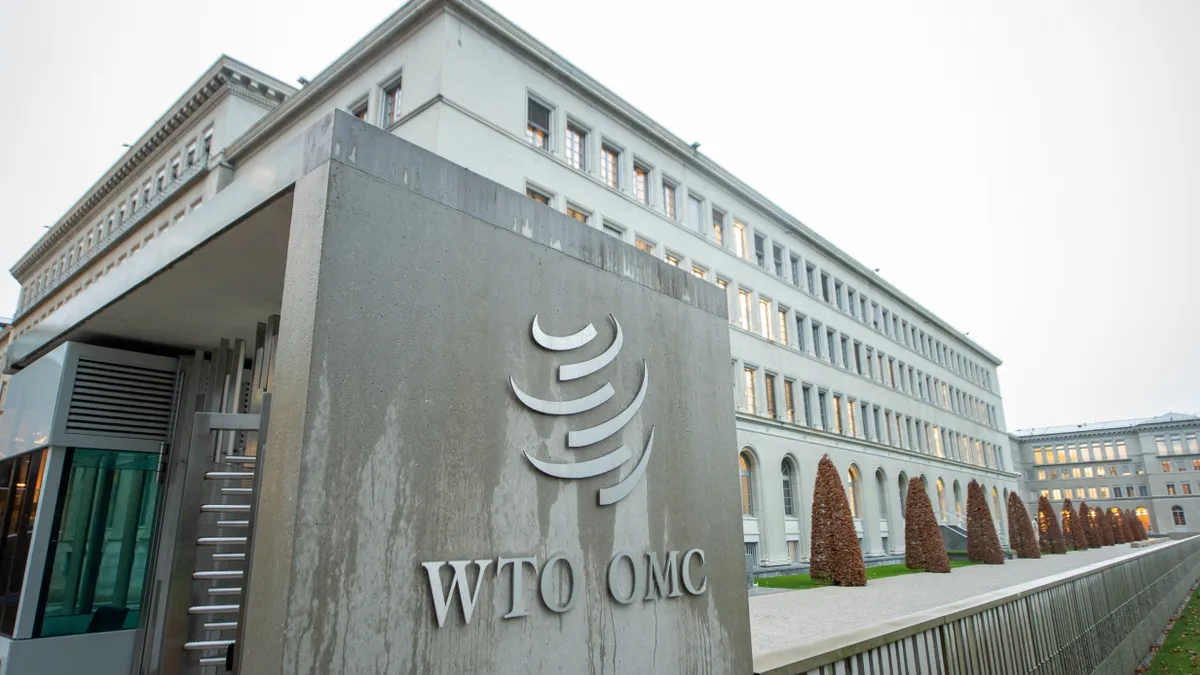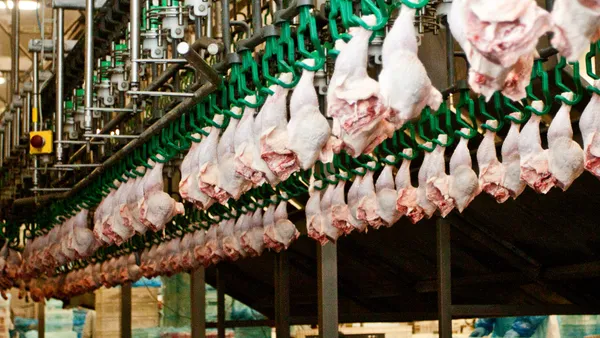Dive Brief:
- The World Trade Organization ruled Wednesday that China violated its trade agreements when it placed tariffs on U.S. exports in retaliation for steel and aluminum duties imposed by the Trump administration in 2018.
- A WTO panel said former President Donald Trump acted in the legitimate security interests of the United States when he placed 25% tariffs on steel imports and 10% on aluminum. As a result, China’s retaliatory tariffs on agricultural goods and other products are “inconsistent” with a fundamental trade commitment reached in 1994.
- China levied tariffs as high as 25% on 128 U.S. products including pork, almonds and a number of fresh fruits and vegetables. The panel recommended China reverse the tariffs and “bring its WTO inconsistent measure into conformity with its obligations.”
Dive Insight:
The WTO ruling is a significant win for U.S. agricultural exporters who have lost a major share of the market since the start of Trump’s trade war.
Agricultural exporters missed out on more than $27 billion due to retaliatory tariffs from 2018 to 2019, according to the U.S. Department of Agriculture, with China making up 95% of losses.
Although many tariffs from other nations have been eased through limited agreements made with individual countries, duties have remained on steel and aluminum exported from China.
The American Farm Bureau Federation hailed the WTO decision, with President Zippy Duvall calling China's tariffs “unjust. ”
“Agricultural trade is necessary for food security around the world and should not be endangered by retaliation for unrelated concerns,” Duvall said in a statement.
Although China could appeal the ruling, the case would be thrown into legal limbo as the U.S. has blocked appointments to the WTO Appellate Body, rendering it incapable of judgment.
China’s commerce ministry has demanded the U.S. immediately lift its steel and aluminum tariffs in response to the WTO ruling, Reuters reported.











